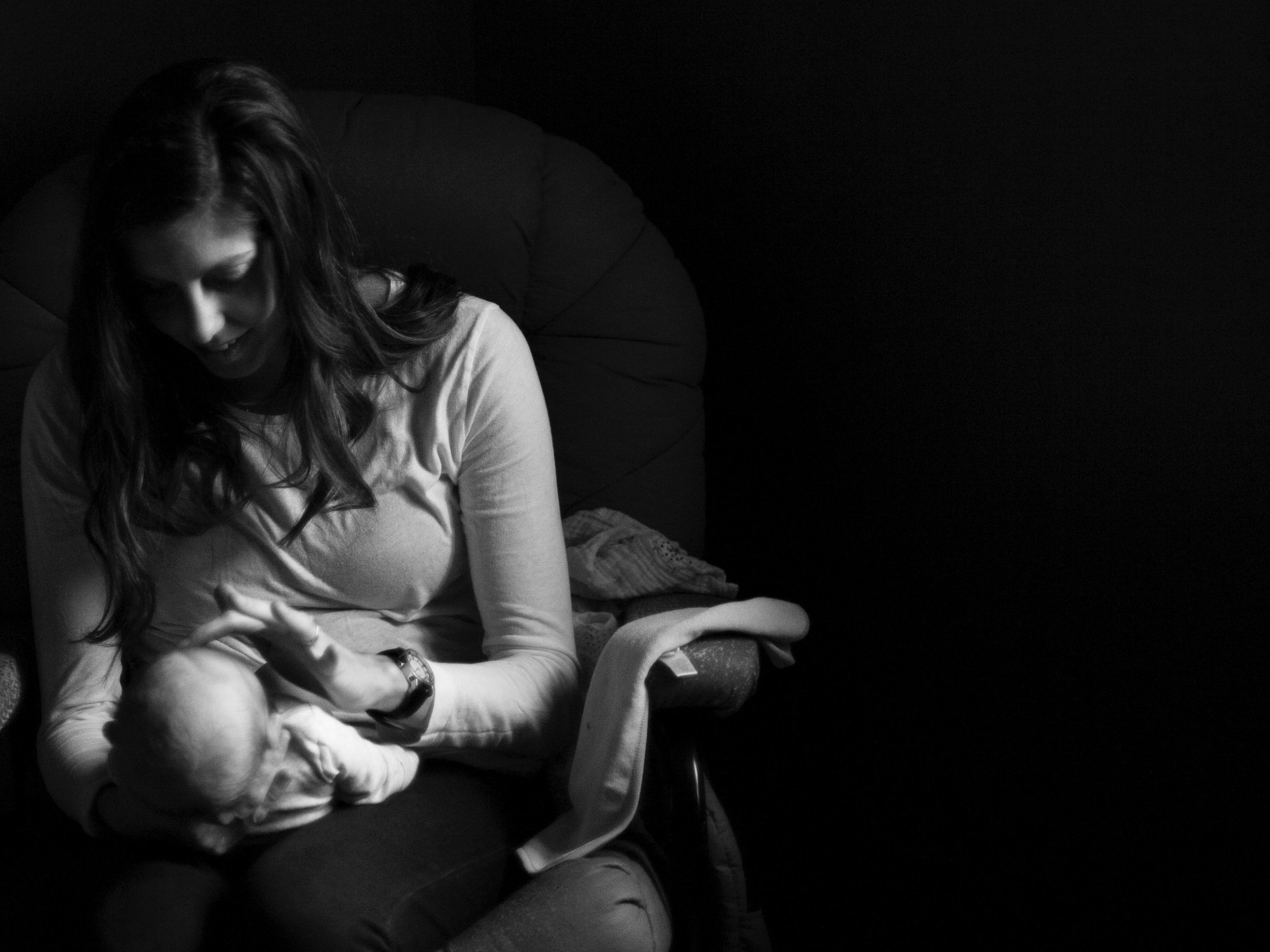Women’s Voices + Stories Save Us: A Mother’s Reflections on Postpartum Depression
This Women’s History Month, I want to speak honestly and openly about my experience with postpartum mental health. Women’s open, honest stories help carry me through motherhood and life, so I hope that in sharing my story, I can help carry others through motherhood and life, as well.
When I was first handed my baby after a healthy labor, I was waiting for my “golden hour” that never came. I knew my baby was mine, and I knew what I thought I was “supposed” to feel, but the reality was that I felt nothing at all. I experienced an emptiness so vast that it clouded everything. I dished this phenomenon to shock, painted a smile on my face, and pretended everything was fine. When I got home from the hospital, I was certain that I would start to feel again.
However, with time, my emptiness grew, followed by deep grief, sleep deprivation with insomnia, isolation, intrusive thoughts, brain fog, guilt, and an unrecognizable reflection of myself staring back at me in the mirror. I reached out to my healthcare providers to ask for help, and I was met with dismissiveness. Their responses (or lack thereof) left me feeling broken and like I couldn’t trust myself. For a long time, when someone asked me how I was doing, I would show a photo of my baby with no mention of the hard, lonely wasteland of what I was going through.
One hard day, I finally reached out to a friend who is also a mother. She showed up at my house with a meal, sat on the couch with me, and said the simple words, “You are struggling with postpartum depression, which is a lot more common than you may think. I see you. Your baby loves you, and you are doing a great job. Let me help you. Let me tell you my story.”
I immediately felt understanding and relief. From that day forward, I started to vocalize what I felt. I was surprised to find almost every woman I spoke to about postpartum depression had some form of struggle within motherhood. The more I spoke up, the more answers, understanding, solutions, and stories I heard from other mothers. I started therapy for postpartum depression. I started to practice self-care again. I discovered valuable resources that contributed to the help I needed for my postpartum journey.
Once I voiced my concerns, found solidarity and connection with others about my struggles, and became connected to the resources I needed, each day I became more of me and less of postpartum depression. To this day, I acknowledge women as the source of guidance, light, strength, education, and awareness for motherhood. I hope to share what I learned through my postpartum depression and healing journey in order to prevent other mothers from prolonging getting the care they need. I want other mothers to know they are not alone and that there are solutions to their problems.
A woman’s voice can (and often does) save another woman’s life. A woman’s voice also serves as a lifeline to women who come before and after. I am happy to report that I now love motherhood, love my baby, and love my life. I feel connected to myself again, and I now know that when I struggle, I have a community of women that will hold my hand and share in my burdens by telling me their stories and pointing me in the direction of mental health and healing support I need. For this reality and for these women, I am forever grateful.
LEARNING + GROWTH
Read This Isn’t What I Expected: Overcoming Postpartum Depression to understand what postpartum depression can look like.
Reach out to a new parent. Take them dinner or coffee. Offer them a listening ear.
Recognize the postpartum red flags by reading the graphic below.
If you or someone you know is in need of help, please reach out to NCCC today at support@nashvilleccc.com.


